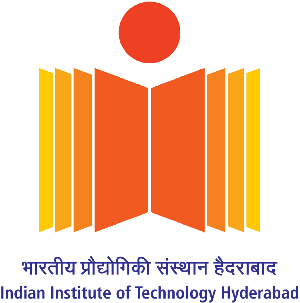Doctor of Philosophy Programme (Communications, Signal Processing and Learning)
Interactive Session with Faculty Members
An online interactive session was conducted by the faculty members of the CSPL stream for prospective PhD candidates on 15 April, 2025. The recording of this session is available above. For more details about the current round of admissions (PhD programme starting in July 2025) please refer to the EE PhD Admissions page.
Research Areas
We conduct research in a variety of aspects of Communications, Signal Processing and Machine Learning, including
- Theoretical Foundations: This includes applied mathematics, algorithm design, deriving bounds on the performance of various communications, signal processing, and machine learning systems.
- Applied Research: This includes careful design, implementation, simulation and validation of algorithms, development of machine learning systems for speech, vision, communications and networking.
- Systems Development: This includes design and implementation of communications and signal processing algorithms on hardware (e.g., SDR and FPGA), prototype and proof-of-concept systems development (autonomous vehicles and 5G-6G communication systems), and validation.
The candidates are encouraged to go through the individual faculty profiles to know more about the current research areas of the CSPL group. The research problems pursued by the group primarily use the following mathematical tools
- Linear algebra/matrix theory
- Probability theory, random variables and random processes
- Convex and non-convex optimization
- Real and complex analysis
Alumni
Our PhD alumni are currently located in top-tier academic and research institutions, including University of Pittsburgh, IIT Indore, IIT Mandi, NIT Warangal, VIT, Qualcomm, and Samsung Research.
PhD Admissions
- August admissions: online applications typically open during mid-March to mid-April
- January admissions: online applications typically open during November
Non-EC/EE students, including those with mathematics or computer science backgrounds, are also eligible to apply for the PhD program. Please see the EE PhD admissions brochure for complete details regarding various modes of admission, stipend, eligibility, etc.
Written Test and Interview
The admission process consists of the following stages.
The written test and interview are typically conducted on the same day in offline mode in IIT Hyderabad campus —
the test in the morning session (about 90 minutes) and the interview of the shortlisted candidates (about 20 minutes) in the afternoon session. However, depending on logistical constraints, the interviews may extend to the next day.

The written test and the interview are designed to examine the mathematical and logical reasoning of the candidates. We are looking for students who are willing to learn and improvise. In particular, we are not interested in rote formula-based approaches for solving problems. The candidates are expected to have a clear understanding of the fundamentals. The focus of the written test is on
- Linear algebra
- Probability theory & random variables
- Mathematical aptitude, including but not limited to elementary calculus and geometry
- Their respective areas of interest
- Basics of communications and/or signal processing
- Programming aptitude
| Linear Algebra |
|---|
| Vector spaces, linear independence, basis, dimension |
| Inner product and norm |
| Matrix algebra, rank, eigenvectors, determinant |
| Solving systems of linear equations |
| Special matrices (diagonal, triangular, orthogonal, symmetric etc.) |
| Probability Theory & Random Variables |
|---|
| Probability density and distributions |
| Combinatorial probability |
| Binomial, exponential, normal, Poisson, exponential random variables |
| Jointly distributed random variables |
| Mean, variance, mode etc. |
| Independence, Conditional probability, Bayes theorem |
References
We recommend the following textbooks to prepare for linear algebra and probability theory & random variables.
- Boyd, Stephen, and Lieven Vandenberghe, "Introduction to applied linear algebra: vectors, matrices, and least squares", Cambridge University Press.
- David Lay, “Linear Algebra and its Applications”, Pearson.
- Gilbert Strang, “Linear Algebra and its Applications”, Cengage.
- Erwin Kreyszig, “Advanced Engineering Mathematics”, John Wiley & Sons.
- Bertsekas, Dimitri, and John N. Tsitsiklis, "Introduction to probability", Vol. 1. Athena Scientific.
- Athanasios Papoulis and S. Unnikrishna Pillai, “Probability, Random Variables and Stochastic Processes”, McGraw Hill.
- Sheldon Ross, “A First Course in Probability”, Pearson.
